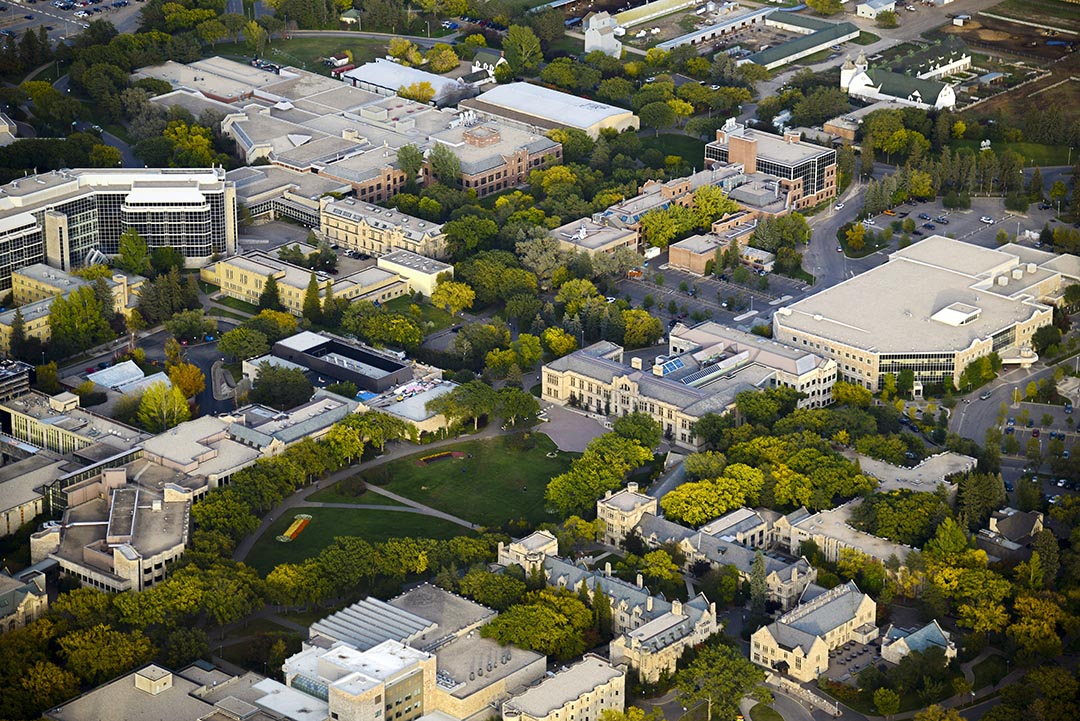
Nine USask faculty members named distinguished professors
The honorary title of distinguished professor recognizes exceptional achievements in research, scholarly, and artistic work.
By Shannon BoklaschukNine University of Saskatchewan (USask) faculty members have been awarded the title of distinguished professor, a designation that honours and celebrates outstanding achievements in research, scholarly, and artistic work.
“On behalf of the University of Saskatchewan, I congratulate our esteemed colleagues who have been awarded the distinguished professor designation during the 2023/24 academic year,” said Professor Airini, USask’s provost and vice-president academic.
“In the University Plan 2025, USask has articulated the bold ambition to be the university the world needs. These nine distinguished professors now join those recognized previously for having made a significant impact locally, nationally, and internationally through their outstanding research, scholarly, and artistic work.”
Professors emeriti and current USask faculty members who hold academic qualifications corresponding with an appointment at the rank of full professor are eligible for appointment to the distinguished professor position. Recipients of this lifetime award become distinguished professors emeriti upon retirement.
“On the selection committee, I was joined by senior leaders, faculty, and members of the community. We examined submissions for evidence of meaningful impact on and off campus,” said Dr. Scott Walsworth (PhD), vice-provost, faculty relations. “The nine new distinguished professors represent the best qualities of faculty at our leading university.”
This year’s distinguished professors are Dr. Gregg Adams (DVM, PhD), Dr. Barry Blakley (DVM, PhD), Dr. John Gordon (PhD), Dr. Jim Handy (PhD), Dr. Jill E. Hobbs (PhD), Dr. Vikram Misra (PhD), Dr. Vivian R. Ramsden (PhD), Professor Susan Shantz, and Dr. Terry Wotherspoon (PhD).
Dr. Gregg Adams – Western College of Veterinary Medicine
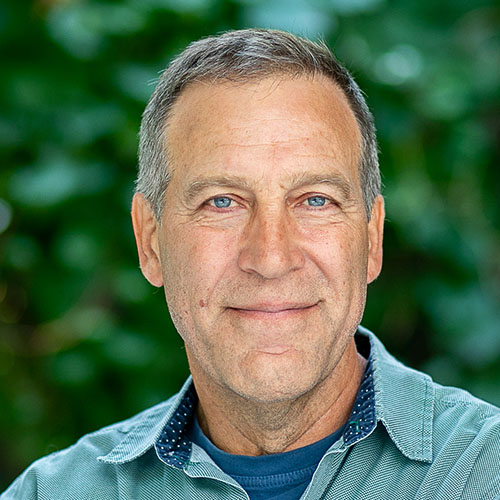
Adams, a professor in the Department of Veterinary Biomedical Sciences in the Western College of Veterinary Medicine (WCVM), earned his Doctor of Veterinary Medicine (DVM) degree at USask in 1982, before completing his master’s degree and his PhD at the University of Wisconsin. He currently teaches veterinary anatomy and has supervised the training programs of more than 45 graduate students and post-doctoral fellows from 11 countries.
Adams, who is recognized internationally for his work on ovarian function, has worked with scientists at USask and across the globe to develop an innovative reproduction research program. Over the past 30 years, Adams and his colleagues have secured more than $50 million in research grant funding. His many research projects include the long-term goal of creating the world’s first bison genome biobank, which aims to conserve and repopulate bison species through frozen genome technology. The project received international attention as well as a $5.1-million grant from Genome Canada in 2022.
Adams’ research team has national and international collaborations, including at Rakuno University (Japan), San Marcos University (Peru), the University of Alaska, the University of California, and the Toronto Zoo. He has published more than 230 peer-reviewed scientific papers, including studies of ovarian follicle development, ovulation, and fertility in terrestrial and marine mammal species. In 2023, Adams was the recipient of USask’s Global Research Leadership Award for Faculty, which recognizes his contributions to research and leadership on an international level. He was inducted into the Canadian Academy of Health Sciences, and is listed in the top two per cent of scientists in the world according to the Stanford University listing.
Dr. Barry Blakley – Western College of Veterinary Medicine
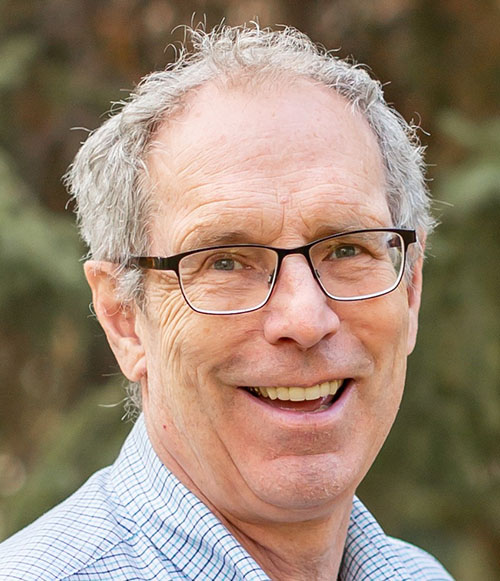
Blakley was a professor in the Department of Veterinary Biomedical Sciences in the WCVM at the time of his passing on March 10, 2024. In addition to being a USask faculty member, he was also a graduate of the university, completing his undergraduate studies in chemistry in 1971, his DVM in 1975, and his Master of Science degree in veterinary physiological sciences in 1977, all at USask, followed by a PhD in toxicology in 1980 at the University of Cincinnati.
Blakley, who also joined the WCVM as a faculty member in 1980, was a highly regarded researcher, educator, mentor, and advisor to local, national, and international governments and organizations. He made significant contributions to toxicology nationally and internationally, and his scholarly work led to numerous publications over his career, including 117 papers and eight book chapters. The impact of his work was recognized in 2021 when he was included on the Stanford University list, which recognizes the top two per cent of the most-cited scientists.
Blakley was a longtime member of the USask Toxicology Centre and received a Lifetime Achievement Award from the Toxicology Centre during its 40th anniversary event in 2023. In 2019, he was presented with the J.J. Murison Distinguished Veterinarian Award at the Annual Saskatchewan Veterinary Medical Association (SMVA) Awards Gala. The award is the highest level of recognition the SVMA can bestow on a member and is based on service to the SVMA, the profession, and the public, as well as on competency, personality, and character.
Dr. John Gordon – College of Medicine
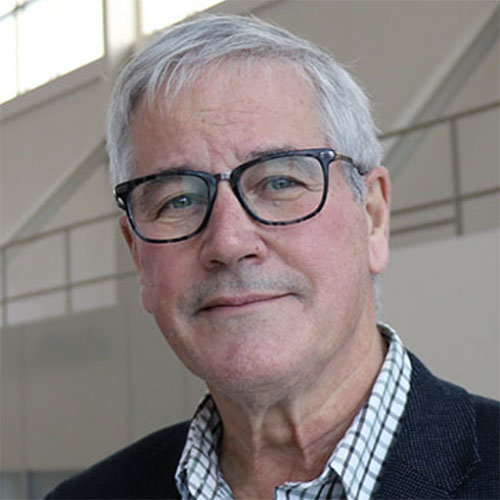
Gordon earned his Bachelor of Science degree in 1977 and his PhD in 1984 at USask before engaging in fellowships at the National Institute for Medical Research at Mill Hill, U.K., and the Department of Pathology at Harvard Medical School in allergy/mast cell biology. In 1991, he joined USask as a faculty member and is currently a professor in the Division of Respirology, Critical Care and Sleep Medicine, Department of Medicine, while also seconded as a special advisor (clinical research) to USask’s Office of the Vice-President Research.
Gordon is an expert in the field of airway disease and immune regulation, including translational work in examining immunotherapies, reversal of asthma and food allergen sensitivities, and the development of anti-inflammatory agents, for which his lab holds eight patents and has obtained $7.9 million in grants or industry contracts. The central focus of Gordon’s lab is the development of immunotherapeutics for allergic and other inflammatory diseases, but they have collaborated with numerous groups locally, across Canada, and internationally, having obtained another $32 million in collaborative research, infrastructure, or training grants.
Gordon is a leader in immunotherapies nationally and internationally and is involved in top clinical allergy-related organizations, such as the Collegium Internationale Allergologicum (CIA). He was one of just 250 members worldwide selected for membership in the prestigious CIA in 2008 and has been a standing member of the organization’s executive committee since 2018. In 2019, he was inducted as a fellow in the Canadian Academy of Health Sciences. He is also the past president of the Canadian Society for Immunology.
Dr. Jim Handy – College of Arts and Science

Handy, a professor in the Department of History in the College of Arts and Science, earned his undergraduate and master’s degrees in history at the University of Waterloo before completing his PhD at the University of Toronto in 1986. Handy’s research areas include capitalism and dispossession, peasant livelihoods, environmental history in Central America, the history of development, and human rights and repression. His work has had international influence in the disciplines of history, geography, economics, anthropology, and political science, and it has aided fellow scholars in their ability to understand the history of Guatemala, colonialism, and revolutions across the globe. A translation of one of his books was published as a special publication of the rector of the national university of Guatemala, the Universidad de San Carlos.
Handy has published four monographs—an outstanding achievement in his discipline—as well as 27 articles during his career, including early work on Guatemalan history in the 1980s that remains a seminal work among scholars. In 1997, Handy and a colleague from the University of Guelph created the Guatemalan Term Abroad program, which was co-run by USask and the University of Guelph. As part of the program—which continued until 2013—40 students from the two universities travelled biennially to Guatemala to live with a family in La Antigua and to take a full term of courses.
In 2004, Handy received the J.W. George Ivany Internationalization Award for his work on the Guatemala Term Abroad program as well as for his role in leading revisions to the international studies program at USask. In 2007, Handy received a Teaching Excellence Award from the College of Arts and Science. In 2015, the Canadian Association of Latin American and Caribbean Studies awarded Handy the Distinguished Fellow Award for his efforts to build bridges between scholars in Latin American and Canada.
Dr. Jill E. Hobbs – College of Agriculture and Bioresources
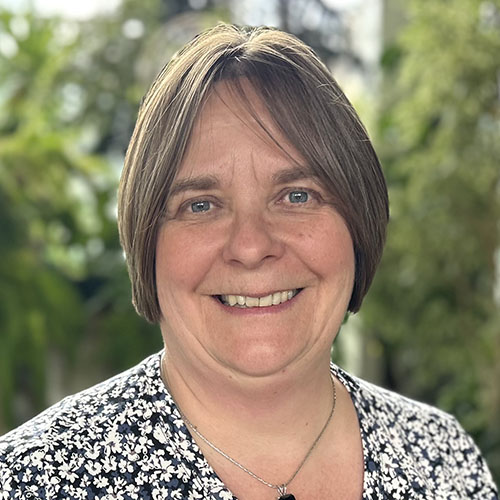
Hobbs, a professor in the Department of Agricultural and Resource Economics in the College of Agriculture and Bioresources, earned her Bachelor of Science degree in economics at the University of Wales, Aberystwyth, and her Master of Arts degree in economics at the University of Calgary before completing her PhD in agricultural economics at the University of Aberdeen in 1995. Her research interests include food policy, supply chain economics, and consumer behaviour in agri-food markets, which has led to research examining issues such as supply chain resilience, the economics of food safety and traceability, transaction costs in agri-food supply chains, consumer trust and attitudes toward novel food products and technologies, the policy environment for health foods, and the international regulation of gene editing technologies in agriculture.
Hobbs is a nationally and internationally renowned expert in agricultural and food supply chains and a highly sought-after advisor for industry, producer groups, and government. She has built a prestigious research program with support from many sources, including Tri-Council funding, and has written 133 papers and eight books. Hobbs and her students have received more than 180 invitations to speak at global events, including keynote addresses in Europe and Canada.
Hobbs has held visiting appointments at San Diego State University, the University of Reading, and Bournemouth University. She held an honorary chair at Aberystwyth Business School, Aberystwyth University, from 2014-2019. Her research has been recognized with awards, including the Publication of Enduring Quality Award from the Canadian Agricultural Economics Society in 2016 and 2019, and a Top Cited and Downloaded Article Award from Wiley Publishing in 2020 and 2022. She was nominated for the Agricultural Students’ Association Instructor of the Year award in fall 2022 and fall 2023. She actively contributes to the academic community through appointments and professional services and, in 2017, was appointed as a fellow of the Canadian Agricultural Economics Society—the most significant recognition from the agricultural economics discipline in Canada.
Dr. Vikram Misra – Western College of Veterinary Medicine
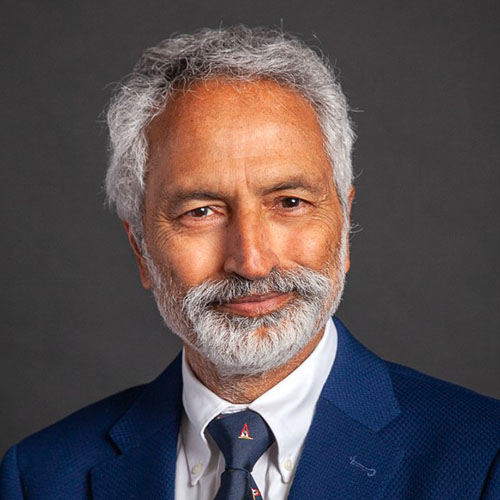
Misra studied as an undergraduate at Jodhpur University in India and at the University of British Columbia (UBC) before earning his PhD at UBC in 1977. He joined the Department of Microbiology in the WCVM at USask the following year. Misra also served as an associate in the Department of Microbiology and Immunology in the College of Medicine. For his research excellence, as well as for his dedication to teaching and mentorship, Misra received accolades and honours such as the Pfizer C.J. Norden Award for Excellence in Teaching in 1996, the Zoetis Award for Research Excellence in 2016, and the Provost’s Award for Excellence in Teaching in 2010.
During Misra’s research, spanning almost 50 years, he examined the effects of stress on the relationship between viruses and their hosts. This interest has taken his laboratory from discovering the signals that trigger the reactivation of herpesviruses to how fungal infections and environmental stressors cause bats to shed more coronaviruses. Misra leveraged these discoveries into synergistic collaboration with clinicians studying cancer, pathologists studying the mechanism of disease, botanists examining the processing of membrane-based proteins, and neurobiologists examining how neurons repair themselves following injury, among others. Misra’s team discovered two neuronal proteins, Luman (CREB3) and Zhangfei (CREBZF), that may regulate herpes simplex virus latency and reactivation. Collaboration with Dr. Valerie Verge (PhD) uncovered the roles these proteins play in the repair of neurons following injury.
Misra and his team of researchers received one of USask’s four inaugural grants in support of One Health research. Their study focused on disease spillover from bats to humans, specifically looking at which factors lead to increased virus shedding. Researchers from several departments at USask worked on the project, as well as from other universities in North America. Misra’s research team uncovered how bats can carry the Middle East Respiratory Syndrome (MERS) coronavirus without getting sick—research that could help shed light on how coronaviruses make the jump to humans and other animals. His influence in shaping One Health at USask and internationally is significant, and that influence was made evident through an invitation from the German government in 2019 asking him to be among 50 scholars to discuss and contribute to the planetary health program. Following two days of discussions in Berlin, The Berlin Principles on One Health was released.
Dr. Vivian R. Ramsden – College of Medicine
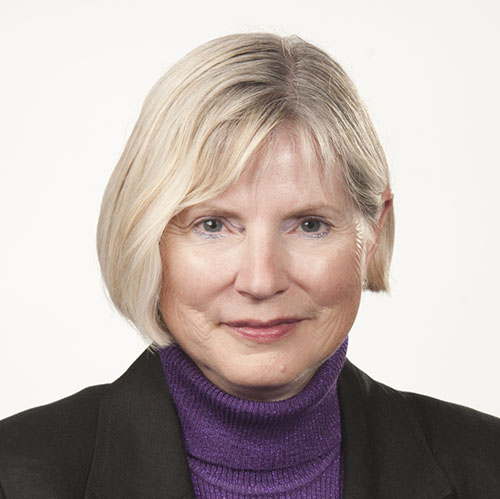
Ramsden earned her Bachelor of Science in Nursing degree at USask and her Master of Science degree at the California College for Health Sciences before earning her PhD in interdisciplinary studies at USask in 2004. She is a registered nurse, a professor, the director of the Research Division in the Department of Academic Family Medicine at the College of Medicine, and an honorary member of the College of Family Physicians of Canada.
Widely recognized for her community-engaged work, Ramsden’s participatory health research in primary care is helping to transform health outcomes in inner-city communities in Saskatoon and Regina, in several Indigenous communities in northern Saskatchewan, and in several villages in south India, as well as for individuals with incarceration experience. She is a passionate advocate for research that partners with individuals and communities to create solutions for issues that affect their health. In 2022, Ramsden was inducted as a fellow of the Canadian Academy of Health Sciences (CAHS)—one of the highest honours for a health scientist in this country.
Ramsden’s CAHS induction follows a significant track record of recognition at the university, provincial, national, and international levels. Some highlights include being named as the 2021 recipient of the North American Primary Care Research Group (NAPCRG) President’s Award for developing a new committee on patient and clinician engagement. In 2020, she was honoured as Family Medicine Researcher of the Year by the Foundation for Advancing Family Medicine and the College of Family Physicians of Canada (CFPC). In 2015, the CFPC named Ramsden one of the Top 20 Pioneers in Family Medicine Research in Canada, after recognizing her in 2012 as an honorary member—the college’s highest honour for a non-physician.
Professor Susan Shantz – College of Arts and Science
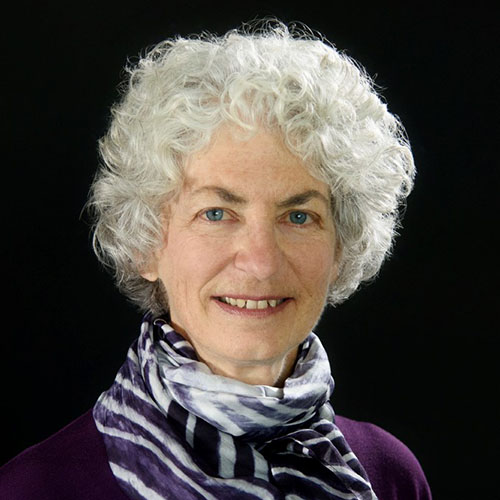
Shantz, a faculty member in the Department of Art and Art History in the College of Arts and Science, earned her Bachelor of Arts degree (English) at Goshen College in Indiana, her Master of Arts degree (religion and culture) at Wilfrid Laurier University in 1985, and her Master of Fine Arts degree (interdisciplinary studio art) at York University in 1989. She is a professor of sculpture and extended media whose research areas include material ways of knowing, ritual and gesture, culture and nature, and art as a cultural performance. She has exhibited her work nationally and internationally in close to 100 solo and group exhibitions and her work is in public and private art collections across the country.
A mixed-media artist who is known for her interdisciplinary partnerships, Shantz recently collaborated with USask scientists to explore the human relationship with water. In 2022, an exhibition at the Moose Jaw Museum & Art Gallery showcased her exploration of Saskatchewan’s water systems and the human-nature connection. The exhibition, Confluence, presented installation, video, embroidered objects, and more as it encouraged viewers to consider the human impact on water and the interconnectedness of the water systems on the Prairies. In 2018, a 15-minute documentary titled Becoming Water: Art and Science in Conversation—produced by 291 Film Co in collaboration with Shantz and Dr. Graham Strickert (PhD), from USask’s School of Environment and Sustainability—was shown at the 41st International Wildlife Film Festival in Missoula, Montana and at five additional international film festivals.
When 3D printing was an emerging technology a decade ago, Shantz collaborated with the College of Engineering to produce a body of work, creatures in translation, which toured across the country. An offshoot of this project was the international, collaborative studio art course Antipods, connecting students at USask with those at the University of Southern Queensland and resulting in four exhibitions in Saskatchewan and in Queensland, Australia.
Shantz is known as a dedicated teacher with a remarkable track record of supervising Bachelor of Fine Arts (BFA) undergraduate students and 30 Master of Fine Arts (MFA) graduate students. She is committed to Indigenization and worked closely with Chiefs and Elders of the Saskatoon Tribal Council to create a studio course, The Child Taken, that engaged student artists in projects related to the Truth and Reconciliation Commission of Canada. She was head the Department of Art and Art History from 2007–2012, during which time she also served on the City of Saskatoon’s Cultural Advisory and Art Placement committees. In 2017, she received the Teaching Excellence Award from the College of Arts and Science and, in 2016 she was awarded the Provost’s Project Grant for Innovative Practice in Collaborative Teaching and Learning. She received a Queen Elizabeth II Platinum Jubilee Medal (Saskatchewan) for service in 2023.
Dr. Terry Wotherspoon – College of Arts and Science
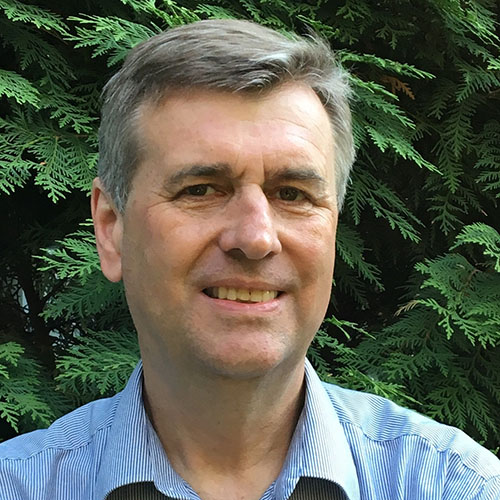
Wotherspoon, a faculty member in the Department of Sociology in the College of Arts and Science, earned his Bachelor of Arts, Bachelor of Education, and Master of Arts degrees at USask before completing his PhD at Simon Fraser University in 1989. Wotherspoon’s career at USask began in 1986 and has included 18 years of service as the head of the Department of Sociology. A dedicated member of the USask community, Wotherspoon has also served on numerous college and university committees while simultaneously receiving widespread recognition for his own research accomplishments in the sociology of education.
Wotherspoon’s research and publications focus on issues related to education, social policy, Indigenous-settler relations, and social inclusion, exclusion, and inequality in Canada. In 2021, he was recognized with the Outstanding Contribution Award from the Canadian Sociological Association (CSA) and the Canadian Review of Sociology Best Article Award, along with co-author Dr. Emily Milne (PhD) from MacEwan University. A study by Milne and Wotherspoon showed that the legacy of settler-colonialism and residential schools in Canada continues to fuel distrust of the education system by some Indigenous parents and hinders the goal of reconciliation in this country.
Wotherspoon, who has a long affiliation with the CSA, was previously recognized for his exceptional service by receiving the 2018 Canadian Sociological Association Outstanding Service Award in 2019 during the CSA’s annual conference. Throughout his career he has received other awards and honours, including the Canadian Education Association’s Whitworth Award for Educational Research in 2002. In addition to his scholarly work, Wotherspoon is also known as a committed educator with an outstanding reputation in student supervision and mentorship. He has taught 20 different sociology courses, and he has supervised 35 graduate students.
Together, we will undertake the research the world needs. We invite you to join by supporting critical research at USask.

